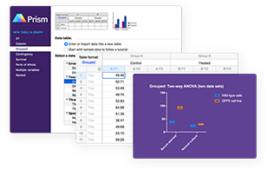Consortium studying mathematical modeling of influenza infection
Mount Sinai School of Medicine today announced that the National Institute of Allergy and Infectious Diseases (NIAID), part of the National Institutes of Health (NIH), has renewed funding of the Program for Research on Immune Modeling and Experimentation (PRIME). This program seeks to develop easy-to-use, predictive mathematical models to better understand patterns of infection among individuals affected by the H1N1 and 1918 influenza viruses and other related viruses.
The renewed contract provides an additional $17.2 million over five years to the initiative, following an initial contract of $16.8 million, bringing the total funding for PRIME to $34 million. Mount Sinai is the primary research site for PRIME, leading five other institutions and organizations around the world.
As part of PRIME, researchers at Mount Sinai School of Medicine use data-based models to simulate the response of human dendritic cells, a type of immune cell, to influenza viruses. The PRIME team will test and refine a cutting-edge informatics platform that replaces paper recordkeeping and transmits results to a centralized database sponsored by NIAID. This database will help scientists more effectively design their experiments and make better use of available data. Under the renewed contract, Mount Sinai researchers will perform large-scale experiments to validate mathematical models and test their predictions, with the goal of helping scientists better understand the immune response to these viruses.
“The number of factors contributing to human response to a virus is overwhelming, far too many for scientists to test through traditional experiments,” said Stuart C. Sealfon, MD, Glickenhaus Professor and Chair of the Department of Neurology, Director of the Center for Genomics, Proteomics and Bioinformatics, Director of the Center for Translational Systems Biology, Professor of Neurobiology, and Professor of Pharmacology and Systems Therapeutics at Mount Sinai School of Medicine. “Using a computational approach, we can better understand what makes these viruses tick, allowing scientists to refer to a centralized database to better direct their experiments.”
During the first five years of the contract, the PRIME team made several advances in working with immunologists on using these tools. With the renewal, the research team will facilitate the use of computational approaches by experimentalists to elucidate the molecular mechanism of action of virus infection.
“The PRIME team is at the forefront of a major transition in medical research to leverage the power of computational biology to help design experiments,” said Dr. Sealfon. “This approach can make these experiments much more efficient and accelerate scientific discovery, which is especially critical in studying severe pandemics.”




